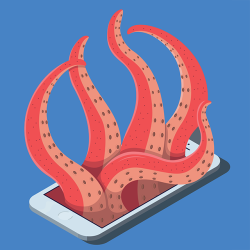
I made a short visit to Pakistan last month. Apart from the intense heatwave affecting the region and causing fatalities in parts of Pakistan and India (which surprisingly only a very few people back here seem to know about), another situation that appeared to be getting out of hands was the spread of conspiracy theories on WhatsApp groups. Conspiracies related to religion, health, pandemic, electoral politics, foreign affairs, business, governance; you name it and you have it, delivered every day right there in your inbox – unsolicited and unchallenged.
My dad sent me many. When asked, he said he was part of many WhatsApp groups with ‘likeminded people’ (friends, friends of friends, and their friends), who shared ‘important information’ all the time. Some of these WhatsApp groups had over 100 members. He showed me forwarded messages about Covid-19 vaccination ‘developed to make Muslims infertile’, India’s ‘secret operation against Pakistan in the Indian Ocean’, Afghan refugees ‘spying for India’, same-sex relationships as a ‘plot to ruin Muslim youth’, international food chains feeding Pakistanis ‘haram food’, etc. A quick look at his messages felt like a trip on a vehicle of misinformation and propaganda. But more so, I got very worried for my dad because a simple WhatsApp message can get you death in Pakistan. The most recent case was that of a woman who was sentenced to death over an alleged blasphemous message sent over WhatsApp. All it needed to get her killed was for someone to report her to the police with or without a screenshot of the message as evidence.
In Pakistan, mis- and disinformation has picked up over the recent years. Low levels of digital literacy among a huge portion of the population also makes them vulnerable to various types of online and digital propaganda. As of 2020, there were 46.2 million WhatsApp users in Pakistan. Even if every user sends a single message a day, that means at least 46.2 million messages are exchanged every day. While this is great for communication and connectedness, in a country that is ravaged by extremism, violence, conspiracy theories, and misinformation, this digital tool can conveniently turn into a weapon used to share big amounts of information without prior verification.
A 2021 study that mapped the public’s understanding of misinformation in Pakistan revealed that 70% of the respondents could not always detect if the information they had received was true or not, although 9 out of 10 Pakistanis said they saw misinformation as a major problem among social media users.
Unfortunately, not much is being done to address the spread of conspiracy theories, and especially when it happens in groups on messaging apps such as WhatsApp, where users are stuck in an echo chamber. The first time the government began some efforts to educate the public about misinformation was in 2018, prior to the general elections. The full-page public service advertisements in newspapers across the country read, ‘Together we can fight false information,’ and listed 10 tips on differentiating rumours from fact. Then it went silent, and the situation only got worse over the last four years.
Concerns over misinformation is not a Pakistani phenomenon only. In the last two-and-a-half years, we witnessed how universal scientific assumptions were and continue to be discredited and delegitimised globally by the public, and how conspiracy theories and false claims quietly proliferated among groups predisposed to spreading the message, such as people opposed to vaccines. What we need to remember is that ideas that are frequently circulated among closed groups have a huge potential to become mainstream, and if not nipped in the bud, they have and will always come back biting at us.

Ayesha Jehangir, CMT Postdoctoral Fellow
This was featured in our eNewsletter of 22 July, read it in full here.
If you want to receive this newsletter direct to your inbox, subscribe here.

